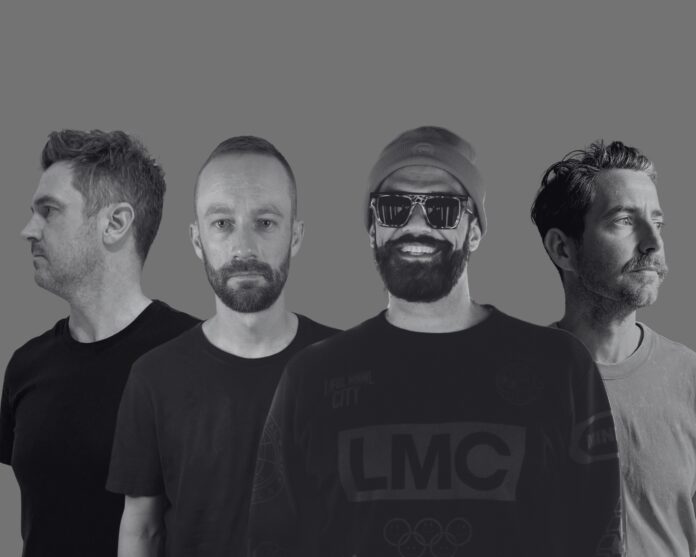WARNING: The following contains spoilers for Platinum End, now streaming on Crunchyroll and Funimation, as well as discussion of suicide and self-harm.
Death Note’s Light Yagami and Platinum End’s Kanade Uryo have a lot in common: they’re both highly intelligent, narcissistic and want to achieve Godhood in order to rebuild their respective worlds in their own image. Light tries to “create a better world” by using a shinigami’s notebook to mass murder people he decides are a detriment to the world as Kira. Kanade tries to accomplish this same goal by strategically murdering other God candidates using an angel’s powers as Metropoliman.
Despite Light and Kanade being terrible people with horrifying motivations, Kanade somehow still outclasses Light in his level of villainy. For all the traits they have in common, Kanade's motivations tend to come from a much darker place. There's also the fact Kanade has zero empathy and values human relationships even less than Light does. Kanade's complete lack of empathy actually translates into more monstrous goals for the world he wants to create than Light could've ever thought of.
Uryu Kanade's Motivations Are Darker Than Light Yagami's
One stark difference between Light and Kanade is that Light's motivations originally came from an unselfish place. When Light first found the death note of a shinigami named Ryuk, he didn't know what to do with a notebook that could kill people by simply writing their names within their pages. At first he didn't think it could actually do anything, but tested its power out of curiosity by murdering a criminal who was holding some children hostage.
Once he verified the death note could actually kill people, Light thought about how he could use its power to benefit the world. He decided to cleanse the world of criminals, corrupt politicians and everyone else he judged a detriment to the world as the serial killer known as "Kira." While Light's intentions seemed noble at first, the major flaw in his logic was not knowing the actual context or reasons they engaged in criminal activity. As a result, he ended up killing people who actually had families that depended on them. Additionally, once Light became overly confident in his Kira identity, his narcissism reached dangerous new heights that enabled him to murder innocent people who got in the way of his goals.
In contrast to Light, Kanade's motivations in Platinum End were entirely narcissistic and selfish from the start. As a young man born into a wealthy family, he already believed he had natural superiority over most of humanity. He subscribed to his own brilliance and valued beauty above all else, which manifested in an unhealthy obsession with his younger sister, Rea. When a fight between them resulted in his sister's accidental death, he cryogenically preserved her body and attempted to end his own life to join her in death.
His suicide attempt was stopped by an angel named Meyza, who made him a God candidate. Kanade rationalized that if he became the next God, he would have the power to resurrect his sister and remake the world in his image. To achieve this goal, Kanade orchestrated a monstrous plan to murder other God candidates, including children, as Metropoliman.
Kanade Respects No One While Light Respects Some People
Another huge difference between Death Note's Light and Platinum End's Kanade is how well they respect other people. Prior to obtaining Ryuk's death note, Light actually loved and respected his family, especially his younger sister, Sayu. Even after he became Kira, Light remained protective of Sayu and feared for her safety when she was kidnapped by Mello and brought to the United States for ransom. When he temporarily relinquished his death note and had his memories briefly erased, Light's narcissism took a backseat and he went back to being a compassionate person who hesitated to manipulate other people.
Before becoming a God candidate, Kanade was never shown to be compassionate toward others and his love for his sister Rea was shallow at best. When describing his "love" for Rea to Kakehashi, Kanade only described her physical attributes, indicating he admired her in the same way Pygmalion admired his sculpted statue of a woman. He only saw his sister as an object meant to be observed and preserved, not to be touched or tainted by others.
When Rea first confessed her interest in dating a boy from her class, Kanade immediately got angry since he abhorred the thought of another boy stealing her purity. Even after she died, Kanade continued to treat her body as an object and rationalized her death as a form of preserving her youth, beauty and purity, just like a statue.
Kanade's Goals Are More Discriminatory Than Light's
The most horrifying difference between Light and Kanade is the way they wanted to remake the world in their own image. As mentioned earlier, Light originally wanted to create a crime-free world that people could feel safe living in. His priorities in Death Note leaned heavily on removing the types of people who made the world unsafe and contributed to human suffering. As such, he killed his victims globally and indiscriminately, from petty thieves and muggers to major criminals like murderers and rapists. He also wasn't beyond murdering people in positions of power, such as corrupt politicians.
Where Light went wrong was in murdering people he viewed as a threat to those goals, such as FBI Agent Raye Penber, his finance Naomi Misora and ultimately, freelance detective L Lawliet. None of these victims were criminals or corrupt individuals, but law-abiding citizens who were themselves trying to stop the serial killer known as Kira. The irony of Light murdering them was that they had the same exact goal as him, except they were more interested in bringing him to justice rather than murder.
Platinum End's Kanade, on the other hand, never had noble goals to start with. In addition to wanting the power to resurrect his sister from the dead, Kanade's concept of a better world was decidedly more discriminatory. Whereas Light saw crime and human corruption as the world's major problems, Kanade blamed the world's issues on the poor.
Instead of understanding social inequality as a system that's designed to benefit the wealthy few at the expense of everyone else, Kanade viewed the poor as people who lived carefree lives on the government's dime and the generosity of others. As such, he planned to remake the world by removing the poor, as well as anyone who offended his concept of beauty.
For more information on the warning signs and prevention of suicide, click here. If you or someone you know is in emotional distress or considering suicide, call the National Suicide Prevention Lifeline at 1-800-273-TALK (8255). If you live outside the U.S., click here for a list of international hotlines.
About The Author

